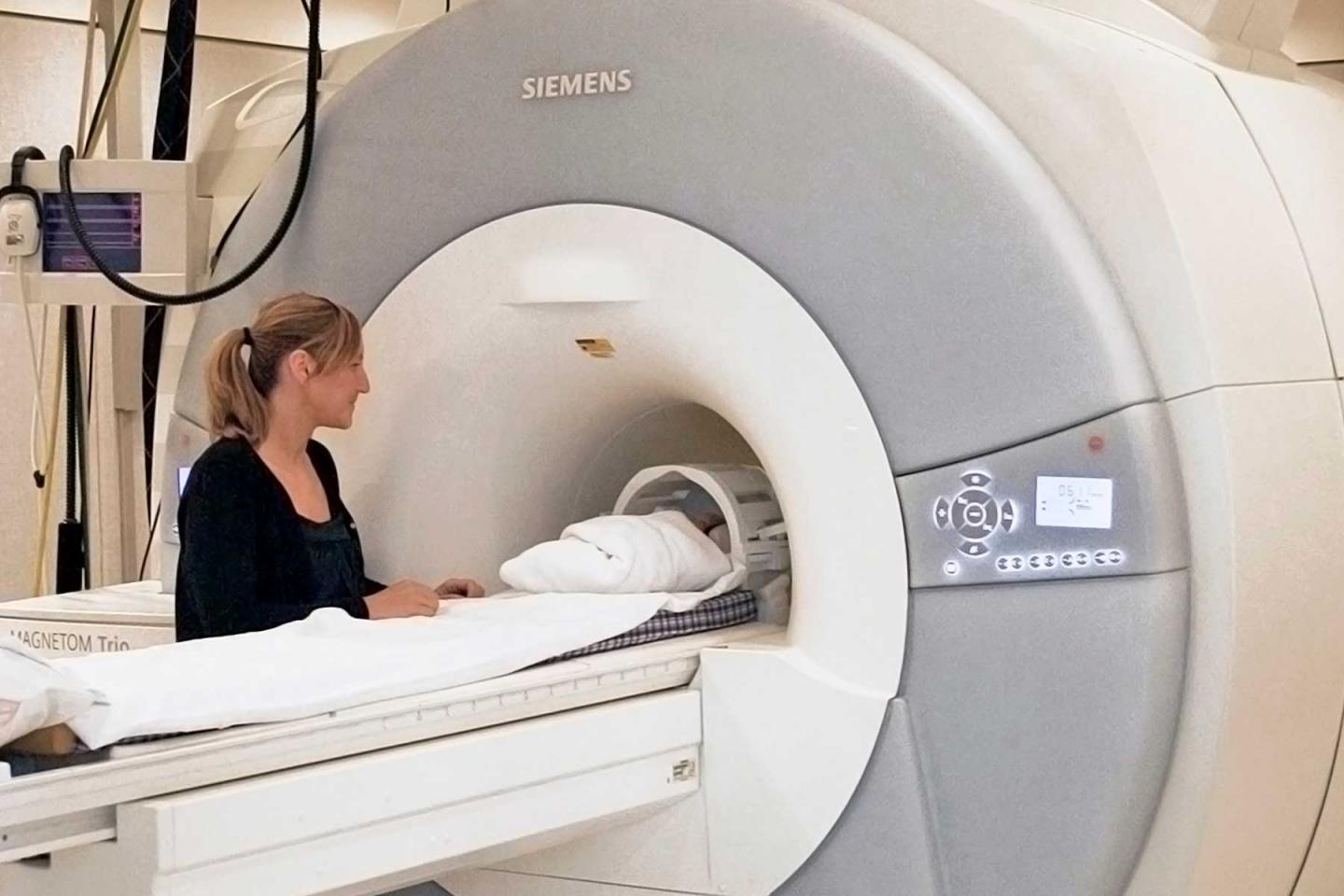Multicenter grant funds infant brain imaging at Washington University and other centers

Credit: Infant Brain Imaging Study network
A multicenter research team led jointly by Washington University School of Medicine in St. Louis and the University of North Carolina at Chapel Hill has received a five-year, $9.5 million grant to further evaluate whether brain imaging can help detect very high risk of autism spectrum disorder in early infancy. Researchers believe that if they can detect evidence of the disorder earlier, behavioral interventions can begin sooner than currently possible, which may help improve outcomes for affected children.
The new grant, from the National Institute of Mental Health of the National Institutes of Health (NIH), funds the continued efforts of researchers in the Infant Brain Imaging Study (IBIS) network. The scientists are looking for differences in the brains of children who are at risk for autism. This knowledge could be used to link such brain differences to behavior that is associated with autism, further helping to identify very young children at high risk of the disorder.
IBIS network researchers will conduct MRI brain-imaging studies on infant siblings of children with autism diagnoses. Such children are known to have a 20 percent chance of developing autism spectrum disorder themselves. In previous work, IBIS researchers have demonstrated that specific findings on MRI scans in children as young as 6 months of age can accurately predict which children later will be diagnosed with autism. They also have identified behaviors that indicate a high risk for a later autism diagnosis.
“During the first phase of the study, we identified brain imaging predictors of a later autism diagnosis in high-risk infants when they were 6 months of age,” said co-principal investigator John R. Pruett, Jr., MD, PhD, an associate professor of child psychiatry at Washington University School of Medicine. “In this next phase, we will work with an entirely different set of families to make sure our initial findings can be replicated. At the same time, we believe we can begin to match imaging findings to clinical findings. In the future we hope to test behavioral interventions earlier in high-risk infants who, currently, are still too young to receive an autism diagnosis.”
The research team, led by Pruett and by Joseph Piven, MD, a professor of psychiatry, pediatrics and psychology at the University of North Carolina, will scan the brains of 250 infants in North America. Scientists at the University of Washington in Seattle; Children’s Hospital of Philadelphia; the University of Minnesota; New York University; and the University of Alberta, and McGill University in Canada also will take part in the study.
Babies in the study will receive MRI scans while they are sleeping. Those tests will be performed when the infants are 6 and 12 months old, to analyze both the brain’s structure and its functional connections. Infants also will be evaluated for language development, repetitive behaviors, social responsiveness and other behaviors that may help predict an autism diagnosis well before the age of 2.
“Our goal is to identify differences in the brain in infancy that accurately predict which children are most likely to later develop autism so that we can begin to eventually explore the effects of presymptomatic treatment in those infants at highest risk,” Piven said. “Intervention in the first year of life, prior to consolidation of symptoms leading to diagnosis and at a time when the brain is maximally malleable, holds great promise over the current practice of treating after diagnosis is established at older ages.”
The hope is to eventually identify autism spectrum disorder at an early age, before symptoms of autism are present or consolidated into a diagnosis.
###
Families who want to participate in the study will be asked to travel to the IBIS screening site nearest their hometowns for brain scans and clinical testing. The imaging sites are in St. Louis, Philadelphia, Seattle, Chapel Hill, N.C., and Minneapolis-St. Paul.
To learn more about the IBIS study, visit the study’s website at http://www.
Washington University School of Medicine’s 1,500 faculty physicians also are the medical staff of Barnes-Jewish and St. Louis Children’s hospitals. The School of Medicine is a leader in medical research, teaching and patient care, ranking among the top 10 medical schools in the nation by U.S. News & World Report. Through its affiliations with Barnes-Jewish and St. Louis Children’s hospitals, the School of Medicine is linked to BJC HealthCare.
Media Contact
Jim Dryden
[email protected]




